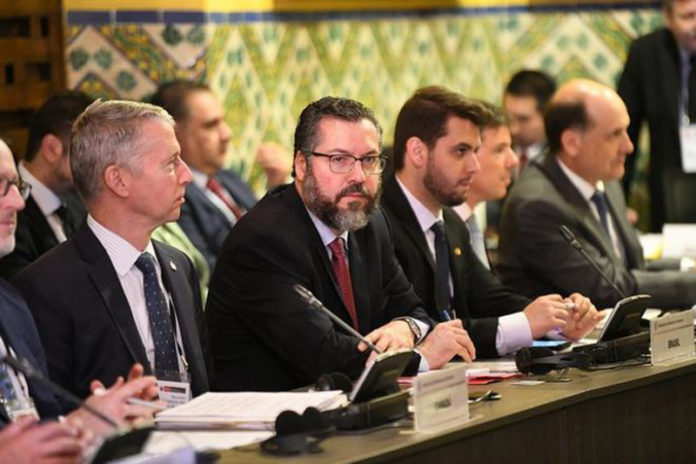
João Fellet-@joaofellet
From BBC News Brazil in São Paulo
In a telegram issued on Tuesday, the Ministry of Foreign Affairs asked Brazilian diplomats to communicate to the UN that Brazil left the Global Pact for Migration, to which the country had joined in December, at the end of the Michel Temer government.
BBC News Brasil had access to the document in which the Ministry requests the missions of Brazil at the UN and Geneva to “inform the Secretary-General of the United Nations and the Director-General of the International Migration Organization, in addition to Any other interlocutors deemed relevant, that Brazil disregarded the Global compact for safe, orderly and Regular migration. ”
The document also states that Brazil should not “participate in any activity related to the Pact or its implementation”.
Wanted, Itamaraty did not confirm the information until the publication of this report. However, diplomats reported to BBC News Brazil in a condition of anonymity that the telegram is circulating in the ministry’s system and reached the addressees.
In recent weeks, President Jair Bolsonaro and Foreign Minister Ernesto Araújo had already announced on Twitter that the country would leave the pact. Araújo classified him as an “inadequate instrument to deal with the problem (migratory)”, defending that “immigration should not be treated as a global issue, but rather according to the reality and sovereignty of each country.”
Human rights for migrants
Negotiated since 2017, the pact established guidelines for the reception of immigrants. Among the points defined are the notion that countries should give a coordinated response to migratory flows, that the guarantee of human rights should not be linked to nationalities and that immigration restrictions should be adopted as a last resort.
The document was chancelled by about two-thirds of the 193 UN member countries. Some powerful nations-case of the U.S., Italy, Australia and Israel, among others-were left out for assessing that the pact violated the sovereignty of States.
The former Aloysio Nunes Ferreira, who represented Brazil in the negotiations, had already criticised the idea of abandoning the pact.
“The question (migratory) is rather a global issue. All regions of the world are affected by migratory flows, sometimes as the issuing pole, sometimes as a transit place, sometimes as a destination. Hence the need for global responses, “he wrote on Twitter.
Aloysio also stated that the pact does not “authorise indiscriminated migration” and “seeks only to serve as a reference for the planning of migratory flows, without the slightest interference with the sovereign definition by each country of its migratory policy”.
Conservative movements sympathetic to Bolsonaro’s candidacy were critical to the agreement.
In Brussels (Belgium), a protest against the pact convened by far-right groups gathered about 5000 people and ended with clashes between demonstrators and security forces in December.
Brazilian migrants abroad
For Camila Asano, coordinator of Foreign Policy of the NGO Conectas, the abandonment of the agreement by Brazil is “extremely regrettable”.
“It shows that the government is not looking for all the people who need protection,” she said, noting that there are more Brazilian migrants living abroad than foreigners in Brazil.
According to Asano, by leaving the agreement, the Brazilian government does not consider “many Brazilians who live in other countries and suffer from the denial of basic rights.”
She says that the pact expresses a “very minimal consensus, but still very valuable, about which would be good practices for the reception of the flows”.
“Brazil is undermining one of its main international credentials: being a country formed by migrants and with a migratory policy seen as a reference, which was giving a powerful voice to Brazil in the international discussions on the subject,” he lamed.














